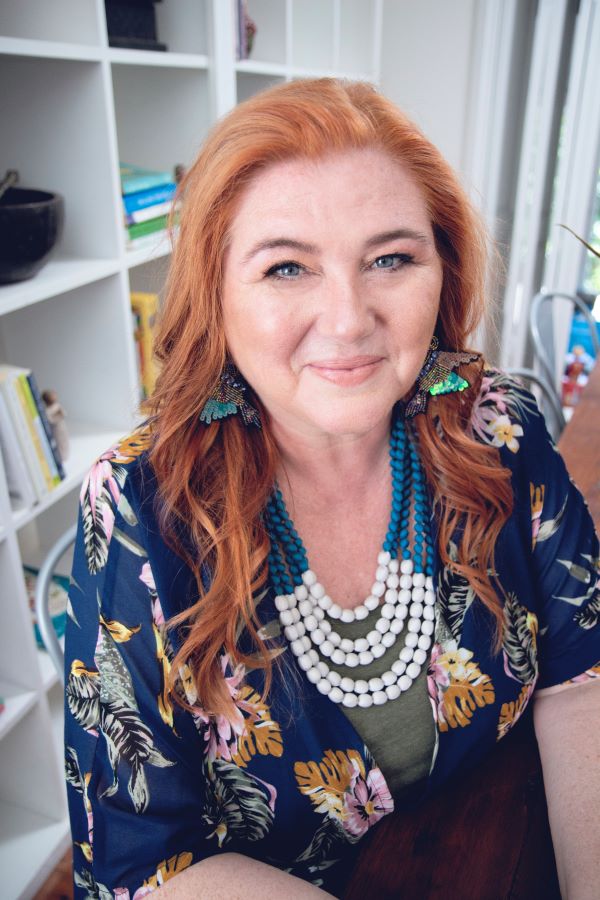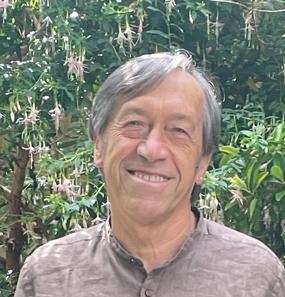About the College
The College of Psychotherapy is a national College, dedicated to supporting psychotherapists and advancing the practice of psychotherapy in Australia.
A Leadership Group has been established to lead the College and to plan activities for College members. The College has also established its Terms of Reference and About Psychotherapy Definition
Activities may include:
- Providing continuing professional development
- Providing opportunities for networking and peer support
- Building a vibrant community of practitioners who are trained in psychotherapy
- Providing resources to the community about psychotherapy modalities and accessing psychotherapy services
- Developing and promoting practice standards and guidelines
- Sponsoring and fostering psychotherapy research
- Providing opportunities for psychotherapists in regional and rural areas to participate
Information on College-related updates, activities, networking opportunities, Community CPD and more is included in PACFA's e-news.
Why should I join PACFA’s College of Psychotherapy?
Psychotherapists have always played a leading role in PACFA and PACFA is committed to the psychotherapy workforce. Given the difficulty of advocating for a varied workforce, the establishment of certification for psychotherapists through the RCP title is a key commitment by PACFA. As the RCP title becomes increasingly recognized, it will be easier for psychotherapists to gain greater remuneration and respect. Joining the college and using the RCP title is a key activity that individual psychotherapists can undertake to lead the profession and support PACFA’s work in this area. This is a long-term strategic approach to ensure that psychotherapy in Australia is sustainable and highly valued.
College-Recognized Psychotherapy Modalities
The College acknowledges that psychotherapy training programs vary over time and place and are continually evolving. To support College applicants, the College has developed a list of College of Psychotherapy Recognized Psychotherapy Modalities. The modalities listed in this resource are considered psychotherapy modalities by the College of Psychotherapy, as long as they are core psychotherapy trainings and have psychotherapeutic principles at their foundation.
This is a guideline only and will be updated as individual trainings continue to change. It is the applicant's responsibility to ensure their training meets the College of Psychotherapy Training Standards. For example, if your course only recommends 40 personal psychotherapy hours, it is your responsibility to make up the remaining 110 hours.
What happens if I do not renew my membership?
PACFA is a key advisor to the National Standards of Counselling and Psychotherapy currently in development by the Federal Government. As part of this project, PACFA is advocating for College of Psychotherapy members to be recognized as Registered Clinical Psychotherapists. Please note that not renewing your College of Psychotherapy membership may prevent you from rejoining as a College of Psychotherapy member in the future, as those who have previously been historically grandfathered into the College may not meet the current requirements of 450 hours of modality specific training with supporting documentation.
To contact the College of Psychotherapy Leadership Group, email [email protected]
How do I join?
You can join the College as a Clinical member, which includes use of the Registered Clinical Psychotherapist (RCP) title.
Please note Student, Affiliate members and Certified Practising Members are not eligible to join the College of Psychotherapy. For more information, please read the update for affiliate members.
The College Leadership Group has been working on improving the membership application pathway and supporting documentation. To support the implementation of the new pathway, the College has produced new resources to support applicants in applying via the updated pathway and the pathway is now open for applications.
New resources will include:
- Application Journey
- FAQ's
- Eligibility Criteria Checklist
- Updated application form
The College of Psychotherapy Training Standards can be viewed here to help prepare your documentation in the lead up to the new resources being made available.
Our specialist Colleges offer advanced training opportunities to registrants who meet the Colleges’ entry requirements. Annual membership of the College of Psychotherapy is available to eligible registrants (application and membership fees will apply).
Members of PACFA Member Associations who are listed on the PACFA Register may also join the College of Psychotherapy. There is an annual fee payable as detailed in the Schedule of Fees.
College of Psychotherapy Members also receive and are encouraged to use an exclusive digital badge denoting their status as a Registered Clinical Psychotherapist.
Check Your Eligibility
Becoming a Registered Clinical Psychotherapist requires a demanding but rewarding process, beginning with meeting PACFA’s registration requirements, and then followed by over 450 hours of Advanced Specialist Training in modality-specific psychotherapy. This comprehensive training incorporates extensive psychotherapy theory, practical clinical skills, clinical supervision, experiential learning, human development, and human diversity. A solid grounding in current research in psychotherapy and a commitment to rigorous ethical standards are fundamental aspects of this professional training.
Additionally, psychotherapists undergo personal therapy as part of their training to ground and integrate their modality, deepen their emotional capacity and self-awareness, ensuring they are well-prepared to navigate the complexities of psychotherapeutic relationships (including working with transference) and client needs. A Registered Clinical Psychotherapist continues supervision, professional development, and involvement in a community of psychotherapists throughout their professional life.
The College Leadership Group has created an Eligibility Checklist for applicants to review prior to submitting an application. Please refer to this resource, and if you have any questions, please contact [email protected].
Download the Eligibility Criteria Checklist
Application Documents
The College’s Leadership Group has been working on improving the College membership application pathway and supporting documentation, and the updated membership application pathway is now open.
Resources to support applicants in applying via the updated pathway are now available:
If you have any questions in regard to the new College of Psychotherapy membership application pathway, please contact [email protected].
Join Now
To apply for membership, please complete the following steps, read and check the boxes to be able to download the application form:
Meet the Leadership Group

Ernst Meyer (Convenor)
Ernst Meyer is originally from Bavaria in the south of Germany, and migrated to Australia in 1995. As a contemporary somatic psychotherapist in private practice he is working with adults, couples and teenage children. Ernst joined the leadership group of the PACFA’s Somatic Psychotherapy modality in 2017, and has been an educator in somatic psychotherapy since 2021.
Psychotherapy is a valid and powerful clinical alternative to psychology and psychiatry. When practiced as a non-medical talk therapy it differs significantly from medical and natural-scientific approaches to so-called mental health. As the Convenor of the College of Psychotherapy his aim is to strengthen psychotherapy’s standing both within PACFA as well as in the wider community.

Jodie Gale (Deputy Convenor)
Jodie Gale has been a been a depth psychotherapist in private practice for over 20 years. She is the founder of The Psychosynthesis Centre, Trauma Warriors, Jodie Gale Soul-Centred Therapy for Women, Opening the Door on Private Practice Facebook Group and The Soul Sessions with Jodie Gale Podcast. She is a Clinical Supervisor, Private Practice Business Coach, Trainer and Facilitator. Jodie is passionate about the field of psychotherapy, and the deep, personal and spiritual work that is required to do this work. Throughout the pandemic, Jodie turned to nature as she grappled with an existential crisis and dark night of the soul – this led her to her year-long training in eco-psychotherapy – a field that is growing and necessary, more now than ever before. Jodie works tirelessly to promote the benefits of psychotherapy to those who have experienced trauma and deep suffering. Psychotherapy is both an art and a science, and the deep relationship that IS psychotherapy, changes lives from the inside out.

Lindy Spanger
Lindy Spanger is a Clinical Soul Centred Psychotherapist with a B.Ed. Lindy has been working in private practice for over 15 years and has recently completed teaching the three year in depth training in Soul Centred Psychotherapy. Lindy is currently completing her training with the Wheel of Supervision to become a supervisor.

Ermanno Bergami
Ermanno Bergami was born in Italy and has been practising as a clinical body-psychotherapist for the last 43 years. He is also an accredited supervisor. In London in 1980, he finished his first psychotherapy training in Bioenergetics. Ermanno has worked as a psychotherapist in the UK, Holland, Germany and Italy. 20 years ago, he moved to Australia, where he currently works in private practice with individual, couples and as a supervisor. In 2016 he completed additional training in Functional Analysis, a contemporary psychosomatic psychotherapy approach. Ermanno has devoted many years of his professional life working with complex traumas and personality disorders and in particular the relationship between trauma and addiction. Together with other colleagues, he has contributed to the development of a new approach in Group Supervision, called “Intervision”. Ermanno is also the director of, and an educator for, The Australian Institute of Functional Analysis.

Martha Calhoun
Martha Calhoun is a Transpersonal and Experiential Psychotherapist with 30+years experience in private practice working with adults and children in individual and group settings. She is a trainer in this modality of psychotherapy and an accredited supervisor. Martha has also undertaken study in social sciences and psychology and more recently in forest therapy. She is keen to support the presence of psychotherapy as a profession in Australia and to further understanding of the meaningful and effective contribution psychotherapy can make in the mental health space.